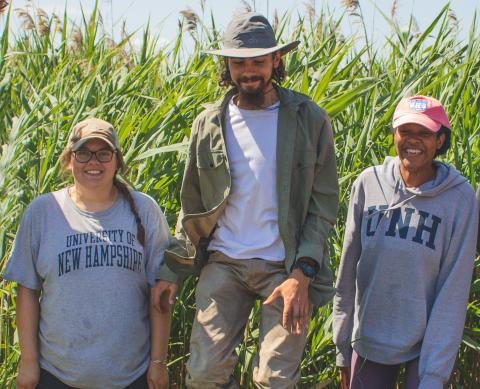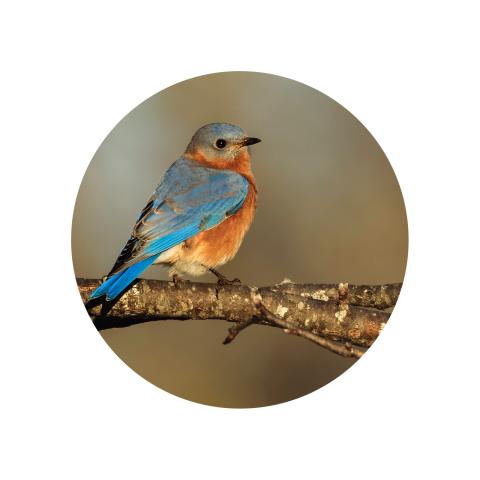Nature Groupie Interns Discover and Remove Perennial Pepperweed, an Invasive Species
For several weeks, Nature Groupie interns Daniel Persico, Emily Wood and Malian Jennings searched for new sites of an invasive plant, perennial pepperweed, along New Hampshire’s coast. It was not until they saw a hawk, perched on a tree in a salt marsh, that they spotted what they had been looking for.
Fascinated by the hawk, they stopped to take a photo of it through binoculars, momentarily distracted from the buzz of greenhead flies and heat of the marsh. After moving forward from where they found the hawk, just five steps ahead, they stumbled upon the biggest site of pepperweed in the N.H. Seacoast.
“It was right there, in front of our faces the entire time,” Jennings says. As they continued walking, it kept popping up everywhere.
“It was like a sea of pepperweed,” Persico says.
Wood, Jennings and Persico are rising seniors at the University of New Hampshire, studying topics that are directly related to their internship – environmental conservation, wildlife and biology. As interns for Nature Groupie and UNH Extension, they’ve spent their summer working outside, helping care for land in N.H. One of their main projects this summer was to monitor the four current sites of perennial pepperweed in the state and survey for new sites of the plant.

Perennial pepperweed (Lepidium latifolium) is an aggressive, non-native invasive plant that is very prominent in Massachusetts. Pepperweed invades coastal saltwater marshes, which are a very fragile and important habitat type. Pepperweed can change the plant composition and value of the habitat types in the marshes by outcompeting the native plants, thus destroying the habitat for many species of animals. Prior to the interns’ discovery, there were only four known sites of pepperweed in N.H. Last year, interns had monitored for it and did not find any new sites.
The interns' work is funded by a grant from the U.S. Fish & Wildlife Service to work cooperatively with Massachusetts and Maine to eradicate pepperweed from the region.
When the current interns discovered the new sites, it was a surprise and brought mixed emotions – excitement at finding what they had been searching for (over several weeks) and regret that there was more of the plant in the state.

A few days later, the interns were joined by other Extension staff, volunteers and N.H. Department of Environmental Services staff and interns to help pull all the newly discovered plants over the course of two days. They made bets of how many stems they would pull. Safe to say that they surpassed their bets and pulled around 14,000 stems all together. They also found other smaller sites of the plant that they are continuing to monitor.
Finding and monitoring this problematic invasive plant have been possible thanks to the Nature Groupie interns. The perennial pepperweed project is just one of the many important efforts that UNH Extension carries out for New England. The early detection of the pepperweed in N.H. is critical so that it won’t become a problem in the future.
“It is promising that we can manage it and prevent it from overtaking the whole state,” says Wood.

